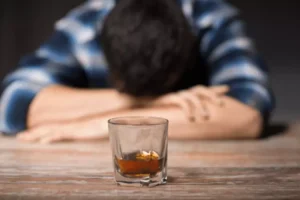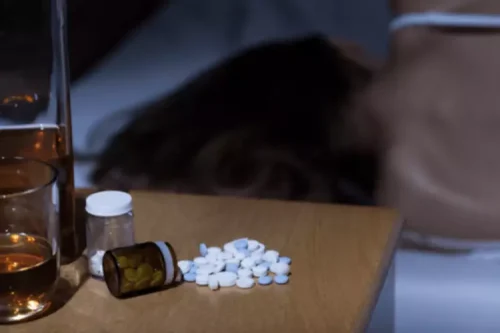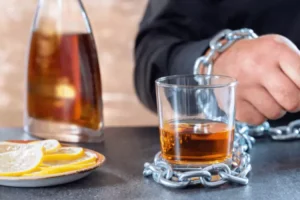How does alcohol cause weight gain? Weight loss tips

Those are the same chemicals that are triggered when you do other pleasurable activities, such as eating, exercising, and getting intimate. Add all of this together and it’s easy to see how drinking heavily can cause you to gain weight over time. That doesn’t mean you have to totally swear off alcohol if you want to lose weight—you just need to be smart about drinking. “The extra calories from moderate drinking (one serving of alcohol for women a day or two servings for men per day) can certainly fit into the calorie allotment for weight maintenance,” Angelone says.
How long does alcohol stop fat burning?
- Are you wondering what the effects might be on your body and its systems and whether they’re good or bad?
- There’s a lack of evidence linking reduced alcohol consumption to weight loss.
- One explanation is that there is a learned association between alcohol and eating; however, several experimenters disguised the presence of alcohol in their protocols and still found increased energy intake 5.
- Long-term effects of alcohol include weight gain from its high calories and low nutritional value.
- Vodka, often touted as a “low-calorie” alcohol option, has sparked debate about its potential impact on weight gain.
- A study published in 2020 used data from the Action to Control Cardiovascular Risk in Diabetes (ACCORD) trial.
But zooming out to year four, there was a small association between weight gain and any drinking in this group. However, there was no observed difference in weight based on alcohol consumption in the control group that received minimal weight loss and diet advice. Take a 2018 study published in the journal Obesity, which examined data from 4,901 overweight or obese individuals with Type 2 diabetes who had participated in a yearslong weight loss program. One group received intensive lifestyle interventions, and was told about the number of calories in alcohol.
Is vodka better than other spirits when it comes to calories?

This response can vary greatly from person to person, and it’s important to recognize that your own metabolic reaction to alcohol could be different than your friend’s. Remember, these effects are usually temporary, and the additional weight is often not from increased body fat, but from fluid and digestive changes. While alcohol doesn’t necessarily affect everyone the same way, it can cause some people to gain weight due to its high-calorie content and the way it affects metabolism, hunger-hormones, and decision making. Halfway house Overall, Simon says, that the best protection against weight gain is “sticking to that average of four or less drinks a week for women, and less than two drinks a day for men.”
Alcohol Intake and Obesity: Potential Mechanisms

One animal study published in 2017 found that alcohol activates cells in your brain that signal intense hunger. After a few drinks, you may be more likely to make unhealthy food choices without thinking about it. Those extra numbers on the scale are likely a result of bloat, water retention, and a digestive system that’s not firing on all cylinders. Bloating can result from the inflammation alcohol causes in the stomach and may last a few days, or longer depending on your body and the amount of alcohol consumed. Avoid high-calorie mixers; opt for seltzer or lime to add flavor without the extra sugars. Still, these factors do contribute to a longer-term connection between alcohol and weight gain.
- Well, the good news is you can still lose bodyweight from consuming alcoholic drinks if you’re doing it right.
- However, it’s important to balance these potential benefits with the risks of excessive alcohol consumption, like weight gain and liver disease.
- Members of this group were advised that they could decrease drinking as a means of reducing caloric intake.
- Many mixed drinks contain a high amount of sugar that’s quickly dumped into your fat stores while your body is busy burning off the alcohol.
That’s an additional 2,000-3,000 calories of fatty, salty, nutritionally poor food sitting in your stomach, which is still reeling from the 4,000+ nighttime calories you crammed into it less than 12 hours ago. This is why you enthusiastically shove cold slices of pizza in your face the day after drinking. So to recap where we are currently, you’ve just consumed anywhere from 1,000-2,000 calories at the pub, and now you’re inhaling another 1,500-2,000 calories of high fat, high sodium food.
Direct effect: excess energy

People with diabetes are more likely does drinking vodka make you gain weight to have nerve damage called diabetic neuropathy, especially if blood sugar isn’t well-controlled. Symptoms include pain and numbness in the feet and issues with the internal organs. Check your blood sugar, whether you’re drinking or not, if you have any of these symptoms.
- Weight loss — or, more appropriately, fat loss — has to do with a number of factors, including genetics.
- As well as the result of passing your tipping point, research shows that poor sleep quality following binge drinking significantly affects weight.
- If you consume too much of it, you can develop alcohol poisoning or even die.
- So if you worry that you’ll be piling on the pounds with sugary drinks, this could be why vodka is your best bet—it has only trace amounts of sugar.
- The MEOS is induced through chronic alcohol intake, and the level of induction increases with increased intake 54, 67.
- The caloric content can skyrocket when mixed with sugary mixers like soda, juice, or syrups, commonly used in cocktails.

![Daniël Klijn [LittleDean]](http://www.littledean.nl/wp-content/uploads/2018/10/cropped-Littledean-LONG-wit-1-1-1.png)